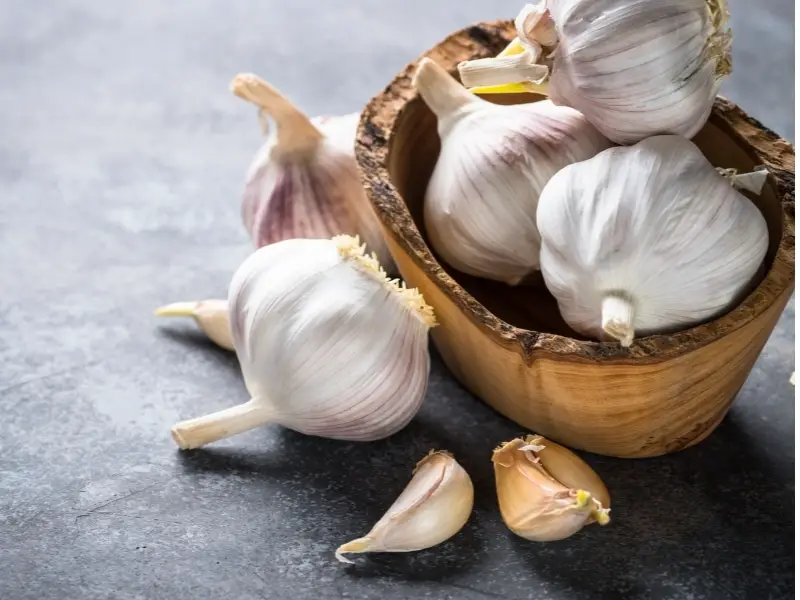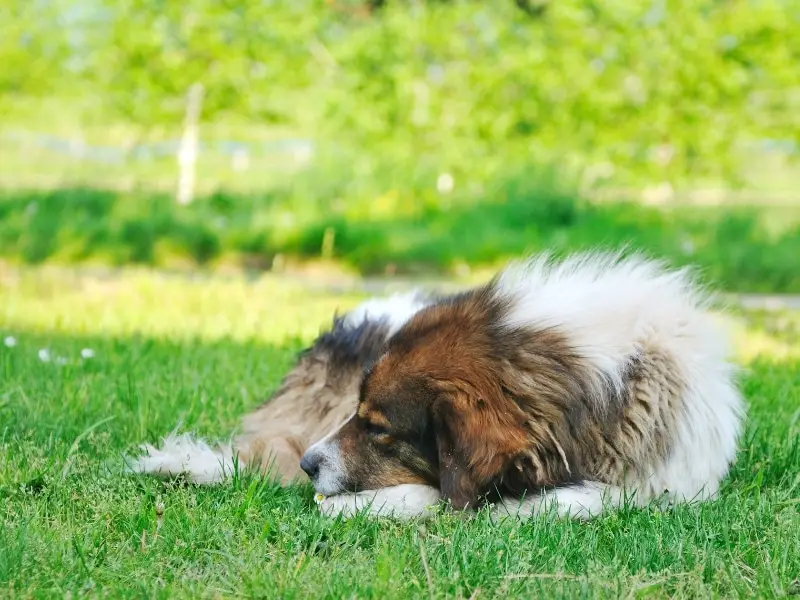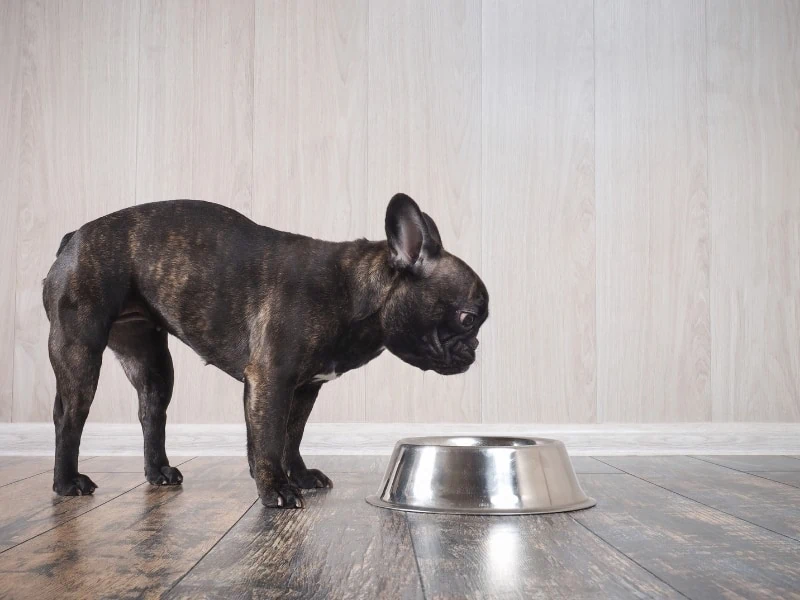A permanent resident of pantries and kitchens all around the world, garlic is a staple ingredient that adds flavor to everything from soups to roasted meat. If you like the taste of garlic in your dishes, you’re probably wondering whether your dog will enjoy the garlicky flavor too!
So, can dogs eat garlic? No, dogs shouldn’t eat garlic. Garlic and other members of the Allium family contain thiosulfate which is toxic to dogs. This compound causes damage to your dog’s red blood cells resulting in hemolytic anemia. But, in most cases, a dog should consume large amounts of garlic to get seriously sick.
There is a lot of controversy when it comes to feeding garlic to dogs! Some experts claim that garlic is safe and can offer health benefits to dogs in small amounts, while others believe it is harmful to dogs and cats.
In this article, we’ll tell you everything you need to know about feeding garlic to your dog and why this isn’t a good idea. Continue reading to find out more!
Is Garlic Good for Dogs?

People had been using garlic as a natural remedy for centuries to treat various health problems. Due to its healing properties, many pet owners and holistic veterinarians believe that in moderation garlic can also be beneficial for dogs (source).
And while many suggest that it’s safe to feed a small amount of garlic to dogs or use it as an effective natural flea preventative, there are many safer foods and flea control methods that you should consider first.
Garlic, like other members of the Allium family which includes onion, leeks, chives, and shallots contains thiosulfate, which is toxic to dogs. A small amount of this compound might not cause any significant damage to your dog’s blood cells, but in large amounts, thiosulfate can make your dog really sick.
When it comes to dogs and garlic, it’s best to err on the side of caution and avoid feeding it to your pooch. But if you believe that your dog can benefit from garlic supplementation talk with your vet first and see what they have to say.
Risks of Garlic for Dogs
While garlic is a staple in many delicious recipes, it’s important to note that humans and dogs metabolize garlic differently. In fact, garlic is considered five times as potent as onions which are also toxic to dogs and can lead to hemolytic anemia (source).
Thiosulfate, the toxic compound found in garlic, causes oxidative damage to a dog’s red blood cells diminishing their ability to carry oxygen.
Please note, all forms of garlic, including fresh garlic, powdered form, or cooked garlic are problematic and can cause garlic poisoning in dogs. Besides causing serious damage to red blood cells, garlic poisoning may also cause gastrointestinal upset and respiratory problems.
Symptoms of Garlic Poisoning in Dogs?

If you suspect that your dog managed to eat garlic, you should contact your veterinarian right away for advice. Furthermore, keep a close eye on your pooch and be on the lookout for symptoms of Heinz body anemia and garlic toxicity.
Keep in mind, the severity of your dog’s symptoms will depend on how much garlic they managed to eat. A large dog, like a Great Dane, can eat a clove of garlic without experiencing any issues, but a small Chihuahua can become ill.
If a dog ingests a huge amount of garlic in one sitting, it will exhibit some symptoms of garlic poisoning shortly. However, if your pooch consumes a small amount of garlic regularly, the toxic levels might build over time, leading to poisoning.
The most common symptoms of garlic toxicity are:
- Lethargy
- Vomiting
- Diarrhea
- Abdominal pain
- Drooling
- Pale gums
- Rapid breathing
- Jaundice
- Dark colored urine
If there is a chance that your dog ingested too much garlic, don’t wait for the first symptoms, instead take them to the vet right away. To make a proper diagnosis, your vet will do a complete blood count, and look for signs of hemolytic anemia on a blood smear.
Treating Garlic Toxicity in Dogs
The good news is that garlic poisoning is rarely fatal for dogs, but depending on the amount of garlic your pup ingested they may require veterinary care.
If your dog ingested a huge amount of garlic, take them to the vet right away! Your vet might try to induce vomiting or administer activated charcoal to bind the toxins if the garlic was recently consumed.
But, if this course of action isn’t possible, your vet might recommend hospitalization and prescribe IV fluids, oxygen therapy, and in severe cases a blood transfusion might be necessary.
How Much Garlic is Toxic to Dogs?
Researchers have found that it takes around 15 to 30 grams of onion per kilo of body weight to cause damage to red blood cells in dogs (source). Considering that an average clove of garlic has between three and seven grams, your dog will need to eat a lot of garlic to get sick.
However, some dogs may be more sensitive to garlic than others. Dog breeds of Japanese descent like Akita and Shiba Inu are very sensitive to garlic and may experience severe symptoms of garlic toxicity.
Based on this research, it’s safe to say that your pooch will be fine if they eat something that contains a small amount of garlic. However, feeding your dog garlic regularly over a longer period of time can cause toxins to build up and send your pup to the emergency clinic.
Conclusion
While garlic adds flavor to many delicious dishes and recipes, it is also one of those ingredients you shouldn’t feed to your pooch. Like all other members of the Allium family, garlic is toxic to dogs and in large amounts can lead to garlic poisoning and hemolytic anemia.
Despite its well-known toxicity, many owners opt to feed small amounts of garlic to their dogs due to its beneficial properties. However, the risks of feeding garlic to your dog are far greater than any potential benefits, so why risk it?!
Related Articles:


0 Comments